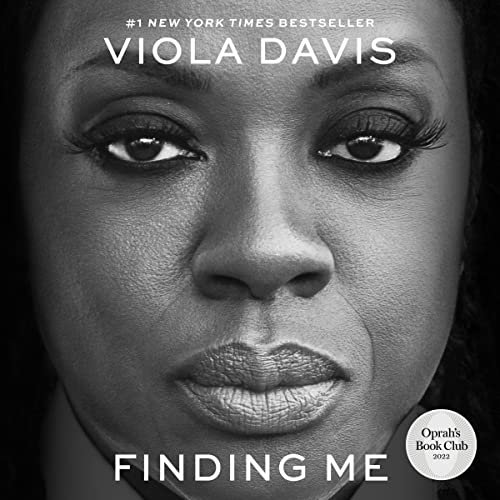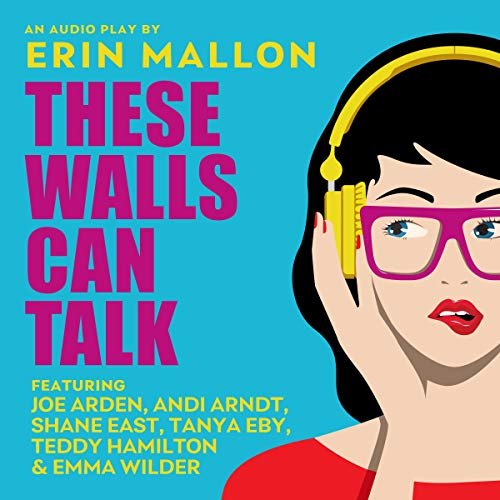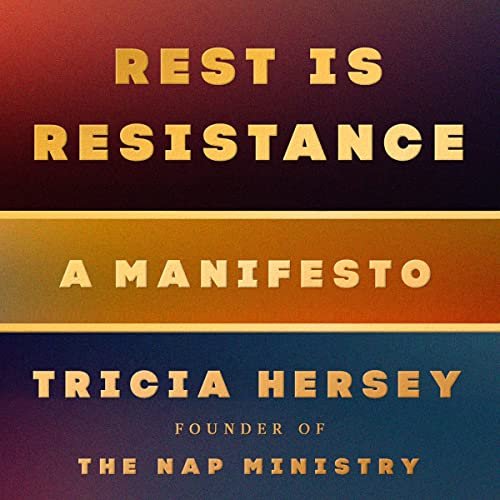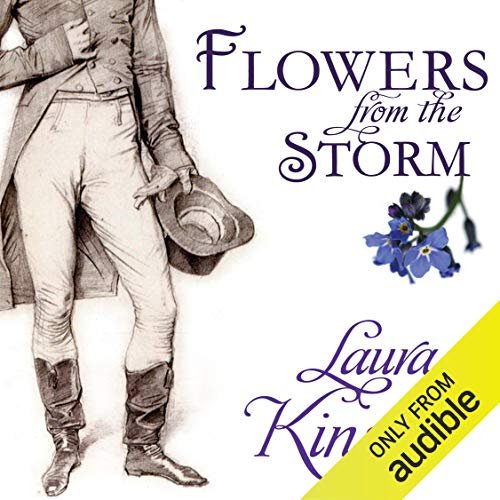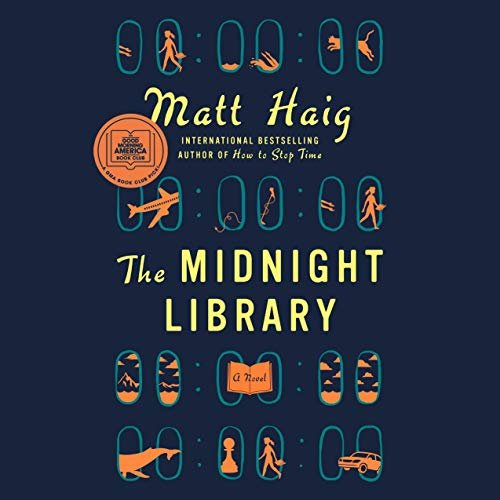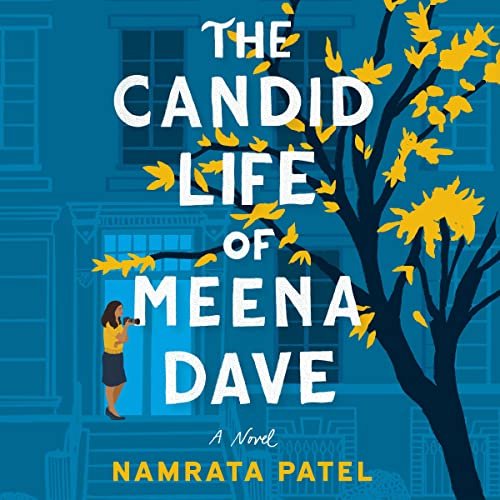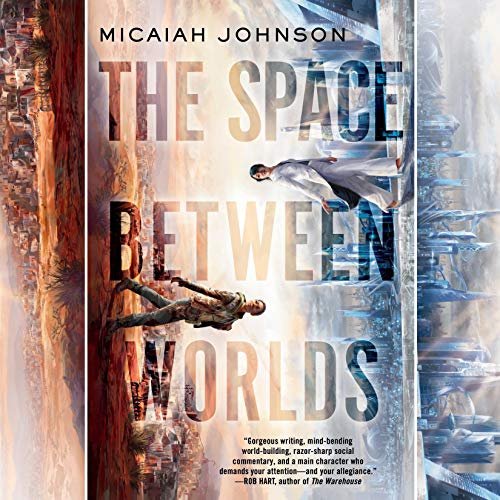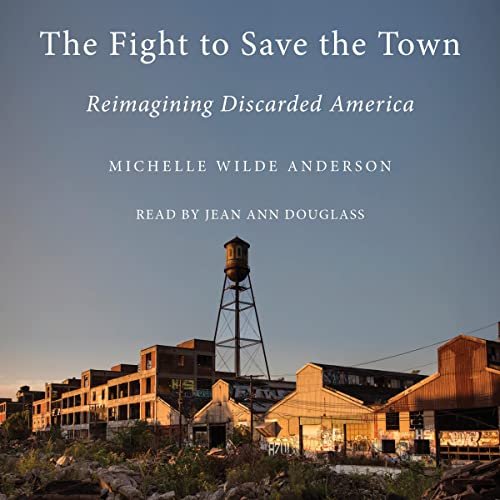Kilby's Top Audiobook Listens of 2022
You know how I love my audiobooks. They’re my preferred mechanism for consuming stories. Why merely read a book if you could hear it performed? This year, I decided to give my top ten audiobook listens their own list (separate from my list of top romance reads). I heard so many great performances this year, and so many that weren’t in the romance genre, that a separate list felt right.
An important note about this list. These are my 2022 reads, as in, the books I personally read in 2022. Their actual publication dates vary. My TBR list is too long and too backlogged for me to focus solely on new releases. I may be late to the party getting to some of these, but I’m still going to name my favorites because I believe they’re worth it.
Finding Me by Viola Davis
//Genre: Memoir
First things first: listen to the audiobook. You want to hear this story in Viola's voice. This memoir is a quasi-chronological account of her beginnings as a mentally vibrant but socially alienated child, partially due to the stigma of being a dark-skinned Black girl in a series of PWEs, but also because of the effects extreme poverty and a dysfunctional home.
As a Black woman and an author, I'm sensitive about Black stories that deal with pain. For me, this book spoke honestly about trauma but transcended played-out storytelling styles and oft-seen Black stereotypes that I’ve come to hate. The greatest achievement of this memoir is its gritty, candid portrayal of Viola's hardships told so seamlessly alongside joyous portrayals of her love for acting. So much of this book is about Hollywood life, and is agnostic of gender an race,. This was easily my best read of the year.
These Walls Can Talk by Erin Mallon
//Genre: Satire
The first thing you need to know about this story is, it's not a romance novel. It's a satirical audio play that follows the lives of two audiobook narrators who meet in the studio while recording a romance. With that said, it’s romance-adjacent. Brilliantly written, it works in all the tropes, paying clever homage.
The plot: an audiobook narrator (the famed and full-of-himself Atticus Barnswallow, performed by Joe Arden) is an icon in the field. The other is a no-name newbie who's just starting out (voiced by Emma Wilder). They are not love interests, but unlikely bedfellows, whose oppositeness is the source of the humor. Atticus has an ego the size of Los Angeles and he's constantly being checked by the humbler personalities: characters like the sound engineer (voiced by Teddy Hamilton), and Vera, a married woman whom he meets for a weird non-date (voiced by Andi Arndt).
It's been a long time since I LOLed while listening to a book. This one had me giggling the whole time. (As my friends can tell you, I do not giggle.) I’m a fan of Erin Mallon (she narrated my debut novel, Snapdragon) and she’s as talented at writing as she is at voice performing. I absolutely loved this series.
Admissions by Kendra James
//Genre: Memoir
This book was one of my top ten because of how many parallels it has to my own story: being one of very few Black girls in the late ‘90s at an elite PWI (Predominantly White Institution). This book had so many moments that actually happened to me, I kept thinking, “I could have written this.”
In Admissions, the author interprets and reflects on the time she spent in boarding school through the course of her adult career: an admissions officer in a different elite PWI. The storytelling is vivid, with skillful jumps back and forth in time.
It felt so personal that I know the way it hit me is vastly different from the way it will hit most others. With that said, it contains a side of the Black experience that I don’t think is often given such a big stage. The “television” version of the Black experience is often urbanized and overly stereotypical. I would love to see more rep around the experiences of Black people living in white suburbs, whose trauma doesn’t come from the problems portrayed as insular to the Black community, but from lack of inclusion.
Rest is Resistance: A Manifesto by Tricia Hersey
//Genre: Self-Help + Sociological study of medicine
If you’re not familiar with The Nap Ministry, stop reading this review right now and check it out. A co-worker told me about it and that’s how I discovered Tricia Hersey. After reading the website about her napping movement and her beliefs system around reclaiming your rest, I was hooked on her blog. When I found out she wrote Rest is Resistance (a familiar refrain from her writings), it was a one-click for me.
The basic premise is this: corporations view humans as productivity machines and won’t hesitate to squeeze us. For most of us, this will manifest as facing pressure of some kind at our jobs. We can expect our needs as humans not to matter to our employers. Some of us can expect direct exploitation. Since corporate norms have become social norms, we need to take it upon ourselves to . Therefore, we need to recognize our own humanity and demand rest.
Hersey certainly isn’t the first person to suggest that industrial complexes treat humans as chattel and she won’t be the last. But her voice is particularly relevant at this moment. This book strikes an impressive balance between reading a candid manifesto but feeling also like a loving pep talk. It’s only a few months old, but I’ve recommended over and over.
Someday, Maybe by Onyi Nwabineli
//Genre: Women’s Fiction
This is a book about grief, at a time when I think we’re all grieving the loss of an otherwise orderly society. The main character, young thirtysomething Eve, is suffering the loss of her husband to suicide, but the grief process she goes through has a certain universality. How do you navigate life when the rug has been pulled out from under your entire world? In this book, Eve manages to achieve what I think a lot of us wish we could when things seem upside-down. Instead of ignoring her pain and pushing through, she disappears into a morass of unapologetic sadness and takes her own time to make sense of all that has happened to her and find her way out.
There’s not much more I can say about the plot of the book without giving away spoilers. Suffice it to say that life goes on around her and she has to re-learn how to live. A huge strength of this book is the ensemble cast of people who love her and how they show up in standing next to her. An evil mother-in-law (Aspen) who smacks of entitlement to Eve’s time and energy is a memorable character; though a lot of the dynamics between the two of them went unexplored. Ultimately, Eve dealt with Aspen as an individual personality may have done. My one gripe about the book is that their interactions never rose to address the bigger ideas their characters and dynamic represented.
The final thing I’ll say is, just because it’s about grief doesn’t make it a tear-jerker though I empathized with Eve, my mood while reading the book wasn’t sad. Though the tone wasn’t lighthearted or witty, the story had many moments of delight.
Flowers from the Storm by Laura Kinsale
//Genre: Romance
I know what you’re thinking: this book is hella old. Thirty years old, to be exact. But so many friends recommended it that I gave it a read. It is easily the best romance I've read all year. Nicholas Boulton’s narration of a speech-impaired character was amazing.
An off-putting duke meets the daughter of a fellow math geek and manages to insult her in their first encounter. Shortly thereafter, said duke is injured in an unrelated duel and sustains a head injury that impairs his cognition and steals his speech. Greedy relatives who want his fortune dump him in a mental institution and are trying to have him declared permanently incapacitated. Attempts to rehabilitate him are unhelpful given the lack of understanding about traumatic head injuries at that time.
By sheer coincidence, he re-encounters the heroine (Maddy) some months later when she is brought to work at the institution as a caregiver. She becomes his closest ally. With the help of Maddy, who finds a way to communicate with him, even when others can’t, they scheme to thwart his greedy relatives.
The plot sounds (and is) very serious but it has a ton of really funny moments, original characters, and great insights. Give this one a listen.
The Midnight Library by Matt Haig
//Genre: General Fiction
Carey Mulligan brilliantly performs the protagonist and POV character, Nora, who is feeling defeated in every area of her life. Her cat dies, she’s fired from her job at a local music store, her lone pupil for piano lessons quits, and we learn that she is estranged from her brother, her only remaining family. It also becomes clear that her mental state (severe, poorly-treated depression) is tied to these rejections. Though Nora sees this, she doesn’t see any way to be authentic or at peace in her life.
Enter her attempted suicide, which is neither graphic, nor painstakingly ideated, nor vividly described. I know this can be a trigger for some; her thoughts of ending her life are extremely brief. Following her attempt, she finds herself in the Midnight Library, and is promptly informed that she is somewhere in limbo between life and death. The magical library has the ability to browse books (read: alternate lives she is leading in parallel planes) one of which she can choose in lieu of death.
From there, she tries on a set of different versions of her life, lives that she could have lived had she made different choices along the way. She quickly learns that each life--even the lives that reverse some of her biggest regrets--has its drawbacks and that there is beauty to be found in her current existence. Does it sound trite and predictable? Yes. Does the writing transcend all that and serve up a story that feels fresh? Also yes. I found it uplifting and hopeful, despite the serious themes.
The Candid Life of Meena Dave by Namrata Patel
//Genre: Women’s Fiction
I had been waiting for this release for (literally) years. This romantic women's fiction has lost identity, found family, and a slow-burn, friends-to-lovers romance. Nomadic, orphaned journalist Meena Dave inherits an apartment from a woman she's never met, in a building co-op that comes with strange conditions, three aunties, and a hot neighbor across the hall. Deciphering the cryptic notes left by the woman who willed her the apartment (who she speculates may be the long, lost birth mother she never met) Meena exorcises her ghosts and finally accepts herself.
The best part of this book is watching the closed-off Meena begin to accept attention and caring from the close-knit community she walks into. The aunties in the book are aunties that most of us have always wanted but probably never had. I love the balance between mystery, self-discovery, and romantic and familial love. A great listen (I read the audiobook version). Five stars.
The Space Between Worlds by Micaiah Johnson
//Genre: Science Fiction
Like many sci-fi novels, it's hard to explain what this book is "about." Suffice it to say, it's set within a hierarchical futuristic society in which those at the top are exploiting those at the bottom in service of their own power and preservation. Our main character is a talented worker bee (but still a worker bee), a dimension-jumper within their multiverse tasked with bringing back intel about how various events are unfolding in parallel worlds.
The protagonist is in the rare position to encounter versions of herself on other planes, which means she also runs into versions of her loved (and hated) ones leading different lives. This book is about her figuring out who she is (which includes figuring things out from the past in her core dimension) and cobbling together a meaningful life at the same times as she’s piecing together the conspiracies of those in power.
If this sounds like every other great sci-fi story you’ve ever read, it kind of is. What I think made me love this one a lot more than some of the more celebrated ones is that it’s not white/cis/heteronormative. For me, this was great sci-fi sans some of the eyeroll moments I experience when reading some other sci-fi.
The Fight to Save the Town by Michelle Wile Anderson
//Genre: Nonfiction
This made a solid case for the idea that we're thinking about local politics all wrong, and how changes to local services (or support for certain budget measures) can lead to unintended outcomes. It does a great job of highlighting common misconceptions about government action or inaction that helps or hurts local crime rates, stimulates or ruins local economies, and improves or worsens the lives of people in the average American town. It presents the kind of information that could transform national conversations about services if citizens from both sides of the aisle read it.
My one gripe about this book (and the reason why I haven't given it five stars) is that it goes a bit too heavy on driving home the same ideas with repetitive statistics rather than talking more extensively about the implications of these discoveries. I think this book would have been a home run with a bit more analysis, call to action, or prediction. At some points, I found myself tuning out around the statistics and getting a bit impatient to hear commentary about what all these observations mean.
